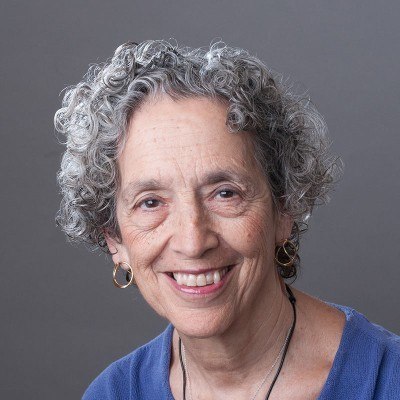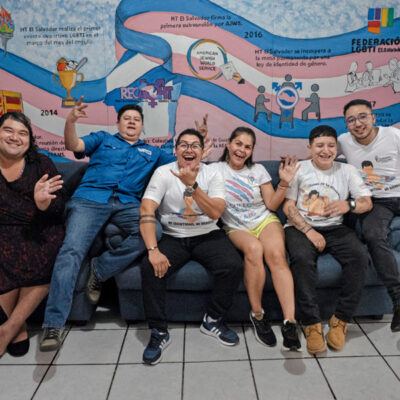Originally published on the blog of the Religious Action Center of Reform Judaism.
On the 50th anniversary of the March on Washington, I’ve been reflecting a great deal on the power and possibility of social change. The climactic moment on August 28, 1963 came when Martin Luther King, Jr. delivered his quintessential “I Have a Dream” speech, which crystalized decades of tireless activism and ignited decades more. But a lesser-known speech delivered by Rabbi Yoachim Prinz—the President of the American Jewish Congress, who took the podium immediately before King—was stirring in a different way.
Prinz understood the plight of African Americans and other disenfranchised groups in the context of his own experience as the rabbi of a Jewish community in Berlin during Hitler’s regime. He devoted much of his life in the United States to the civil rights movement. And, in his speech at the March on Washington, he articulated a message that has always resonated with me: “Bigotry and hatred are not the most urgent problem. The most urgent, the most disgraceful, the most shameful and the most tragic problem is silence.”
As is true for many in my generation, the civil rights movement was a formative part of my Jewish and American identities. In 1965, my mother Marjorie Wyler participated in the march from Selma to Montgomery, as did her colleague Rabbi Abraham Joshua Heschel—an iconic Jewish thinker who marched arm-in-arm with Martin Luther King, Jr. and who likened civil rights activism to “praying with my feet.”
Influenced by my mother, by the values of my family, by my social work training and by the events of the 1960s, I worked with an organization that was committed to fighting racism in New York City, particularly in schools and in the criminal justice system to create greater racial and economic equity. I was working for integrated schools and more affordable housing, and I did the paralegal work on a major defense case protesting the arrest of a group of young men in the Harlem community who were eventually acquitted. In 1968, I participated in the “Poor People’s Campaign” for economic justice on the national mall in DC with my three young children in tow.
Many thought leaders, writers, and activists have rightly noted that the struggle for civil rights yielded tremendous progress but still remains unfinished. The murder of Trayvon Martin, the Supreme Court’s ruling to strike down the Voting Rights Act—a core achievement of the civil rights movement—and ongoing violations of the human rights of people of color around the globe all weigh heavily on my mind.
As president of American Jewish World Service, I am reminded on a regular basis that we live in a world in which the 500 richest people earn more than the 416 million poorest; a world in which politicians, entrepreneurs, and religious leaders are often more concerned with their own reputation than doing what is fair and just; and a world in which women, people of color, girls, LGBT people, and ethnic and religious minorities are engaged in a tireless fight for basic human dignity.
For many Jews—religious and secular alike— our own history of oppression and marginality has fortified an ethic of righteousness and justice for all people, no matter who they are or where they come from. The legacy of Jewish participation in the civil rights movement is a testament to this ethic and has anchored my own work to end poverty and realize human rights for marginalized people in the developing world.
Of course, Jewish involvement in civil rights work—and the enduring contributions of Heschel and Prinz—do not reflect the totality of the struggle. Many others were ‘behind-the-scenes’ architects of the March on Washington and were key players in the civil rights movement at large: activists like march organizer Bayard Rustin and his deputy, Rachelle Horowitz; Jo Ann Gibson Robinson, and Rita Mae Brown; Jewish women like Florence Howe, Annie Stein, Barbara Jacobs Haber, and June Finer. And Stanley Levison, a close aide to Dr. King.
So, as I think about the lessons of the fight for civil rights and its intersection with other social movements—labor rights, women’s liberation, and LGBT rights—I’m taking a good hard look at whose voices count and whose deeds matter. Today’s movers and shakers aren’t always the people we read about in the headlines or see on the nightly news.
These lesser-known actors, who are the life-blood of 21st century activism, are the people from whom I take my cues. People like Rosanna Flamer-Caldera, a Sri Lankan LGBT rights activist working to decriminalize homosexuality in Sri Lanka; Claudia Samayoa, a human rights defender in Guatemala; and Cecelia Danuweli, a peacemaker and women’s rights leader in Liberia.
It’s not easy for any of these activists to stretch their arms across gulfs of difference to do the messy—and often risky—work of building coalitions across lines of race, class, religion, and sexual orientation. And yet, we must open ourselves to their visions for social change and join them in heeding the call to bend the arc of the moral universe toward justice.
Ruth Messinger is president of American Jewish World Service.


